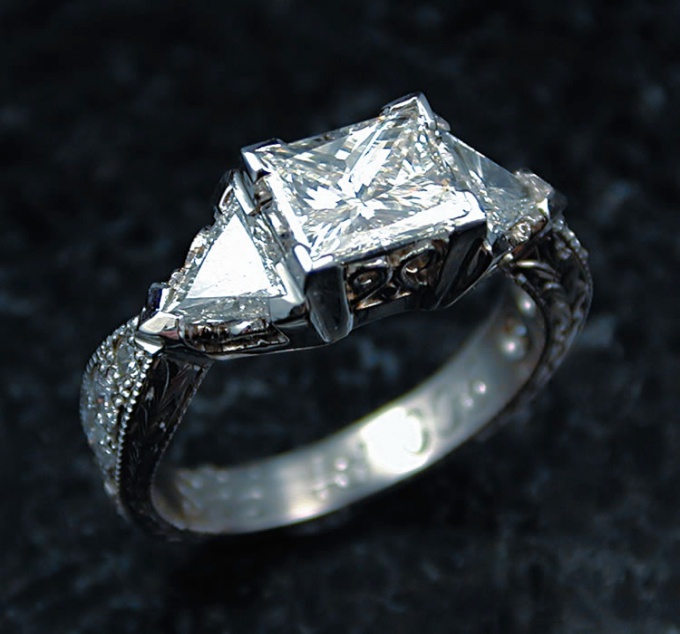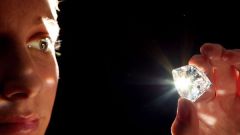You will need
- - magnifier 10-fold increase;
- - butter;
- - hydrochloric acid;
- - quartz lamp;
- - sandpaper or needle;
- newspaper.
Instruction
1
Look closely at a piece of jewelry, in which is fixed the stone for maximum brilliance and fire a diamond, usually placed in the open frame. This mounting method also allows you to easily examine the bottom edge of the cut diamond. Mirror coating bottom faces, a sure sign of forgery.
2
Diamond conducts heat well. To check this property, put the examined the stone in a cold place. Then breathe on it and watch through a magnifying glass over its surface. On a real diamond you will not see any hazy residue, while the imitation of diamond will fog up from your breath.
3
Diamonds can stick to some types of fats. Test with butter: dip the stone into it and attach to the glass surface. A real diamond will stick to the glass.
4
Even the strong acids and their mixtures have no impact on the diamond. Drop check the rock in hydrochloric acid and rate its appearance. Synthetic fakes will have traces of acid, and a genuine diamond will remain intact.
5
One of the important properties of diamonds is a luminescence in ultraviolet rays. Proper lighting can be found, for example, in the disco or under a conventional quartz lamp. If under the action of ultraviolet radiation at the stone appears blue or yellow-green glow, then before you a real diamond. If the glow a different color (or completely missing), this can be a feature of this diamond, and a sign of forgery. In any case, authentication requires additional research.
6
Check the stone for hardness: try to scratch or RUB it with something sharp (needle, sandpaper). The unique hardness of diamond to protect it from such superficial damage, therefore, genuine diamond marks your manipulations will not.
7
A magnifying glass to examine the appearance of the stone. Many small chips, micro-scratches, pitted face should give you an idea about fake. To determine a real diamond, you can also by the presence of the internal defects: black dots are graphite, fine bubbles, light points. Imitate diamond, as a rule, such inclusions do not have.
8
Pick up a newspaper and put it on loose diamonds. Now try to see the printed letters through the stone. Crystal or glass will allow you to do this without difficulty, whereas a real diamond refracts light so that makes the text indistinguishable.
Note
A popular method of determining the authenticity of a diamond to put it in a glass of water. Supposedly the stone become invisible in the water. But this is true only for clear and colorless diamonds. Therefore, the reliability of such tests is small.
One of the newest high-tech simulators of diamond moissanite. This stone is able to successfully pass many of the tests listed above. The only way to detect a fake is to hold the stone for a few minutes over the fire. The result moissanite will turn green. To put your jewelry such verification is only in extreme cases, otherwise you run the risk of hopelessly to ruin it.
One of the newest high-tech simulators of diamond moissanite. This stone is able to successfully pass many of the tests listed above. The only way to detect a fake is to hold the stone for a few minutes over the fire. The result moissanite will turn green. To put your jewelry such verification is only in extreme cases, otherwise you run the risk of hopelessly to ruin it.

